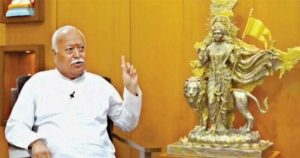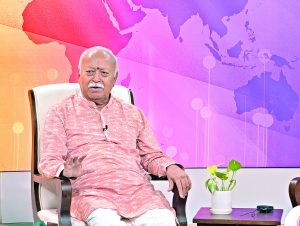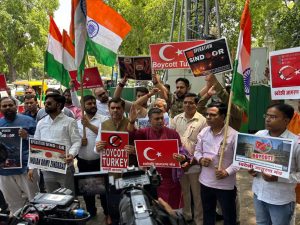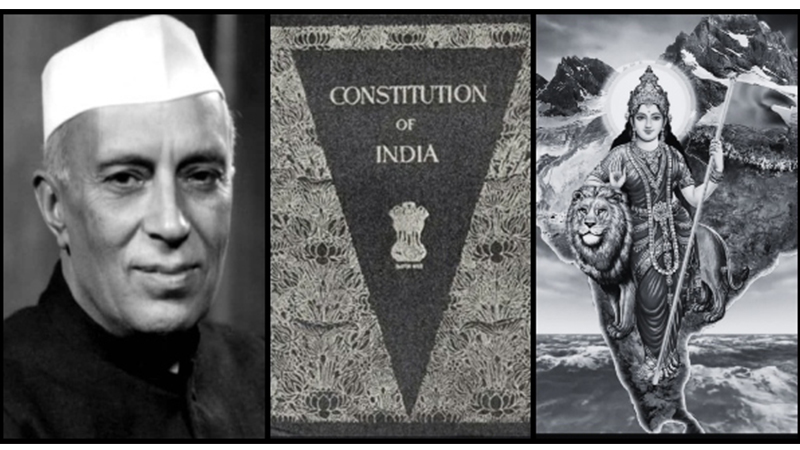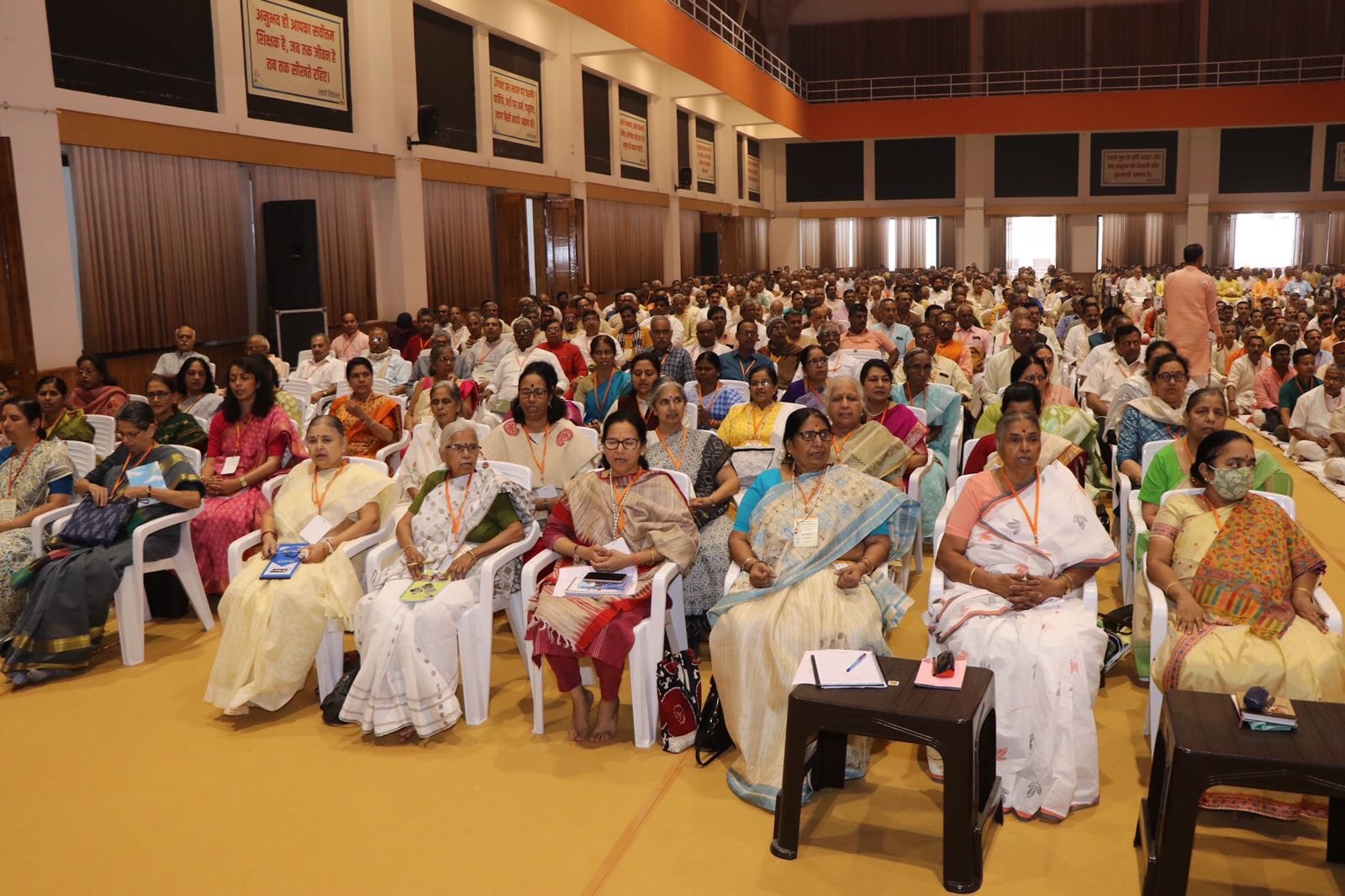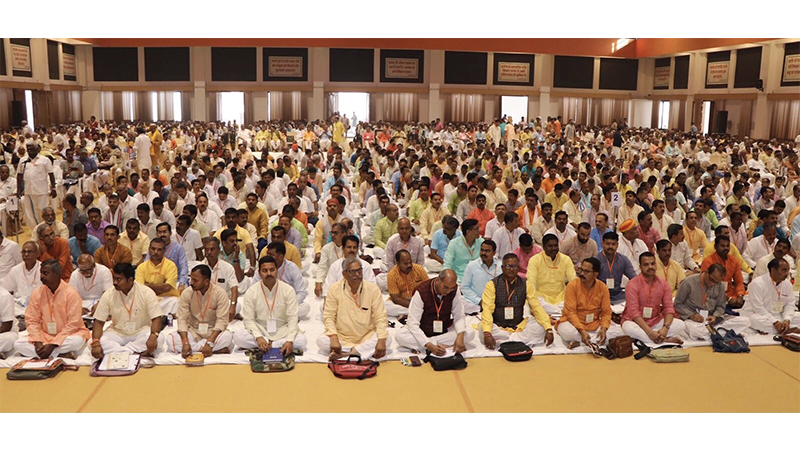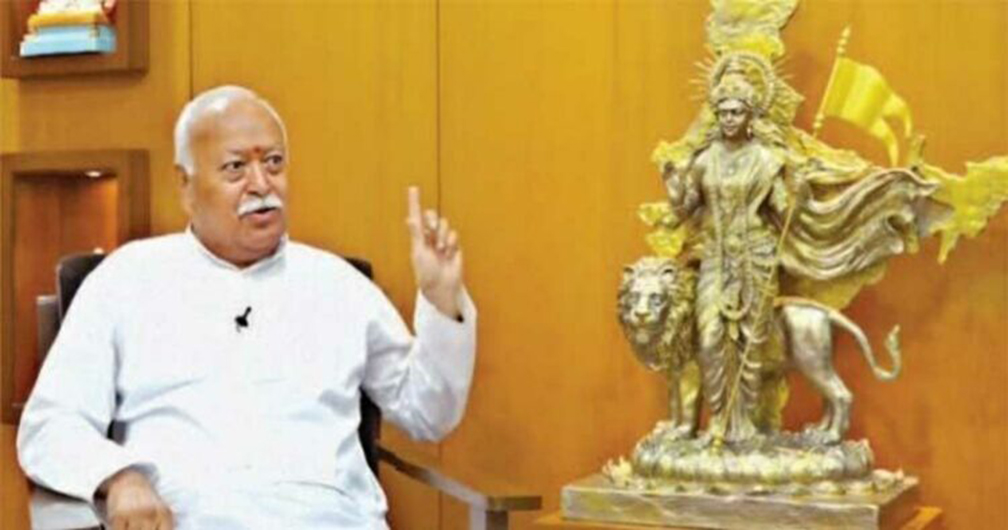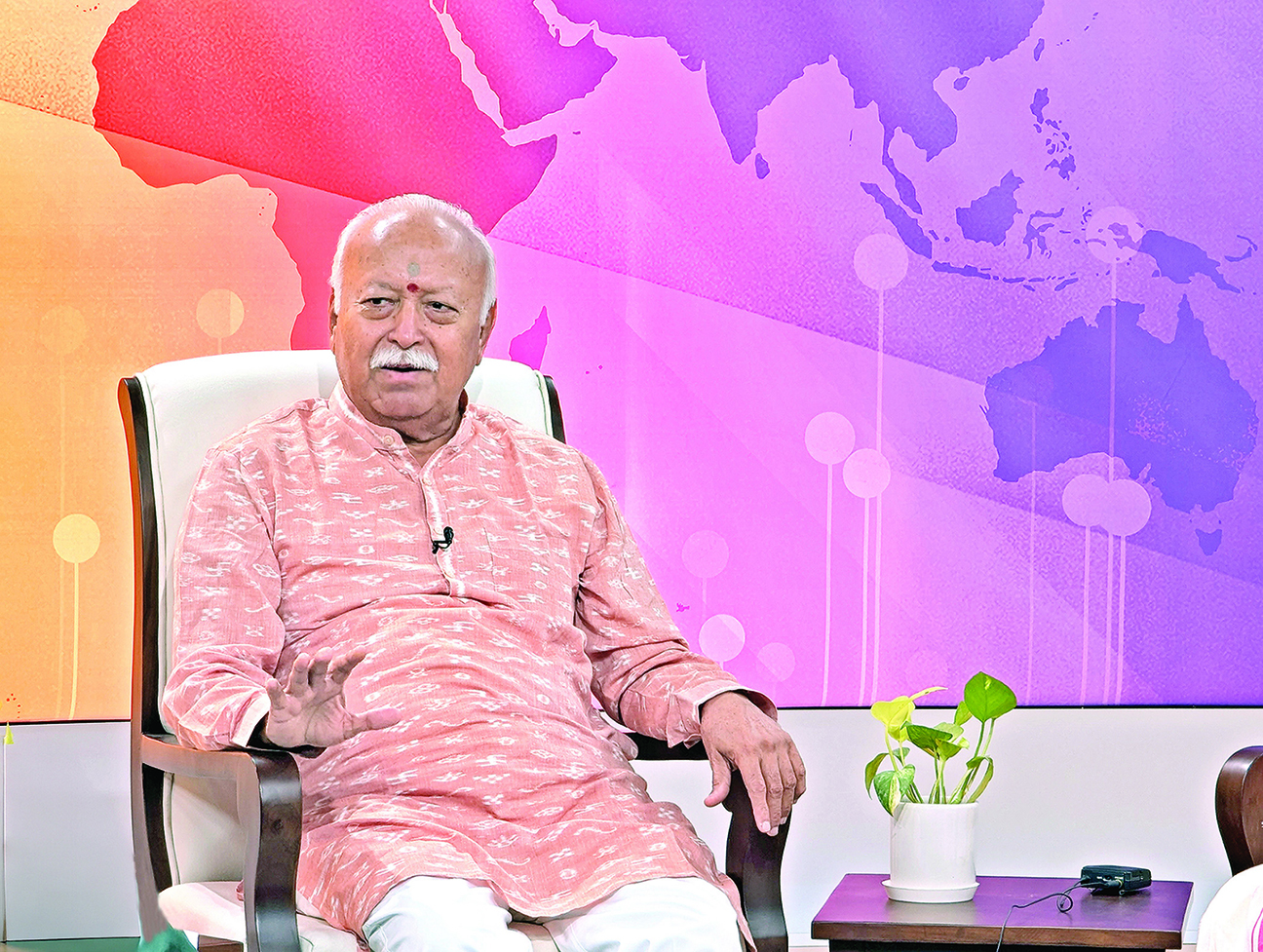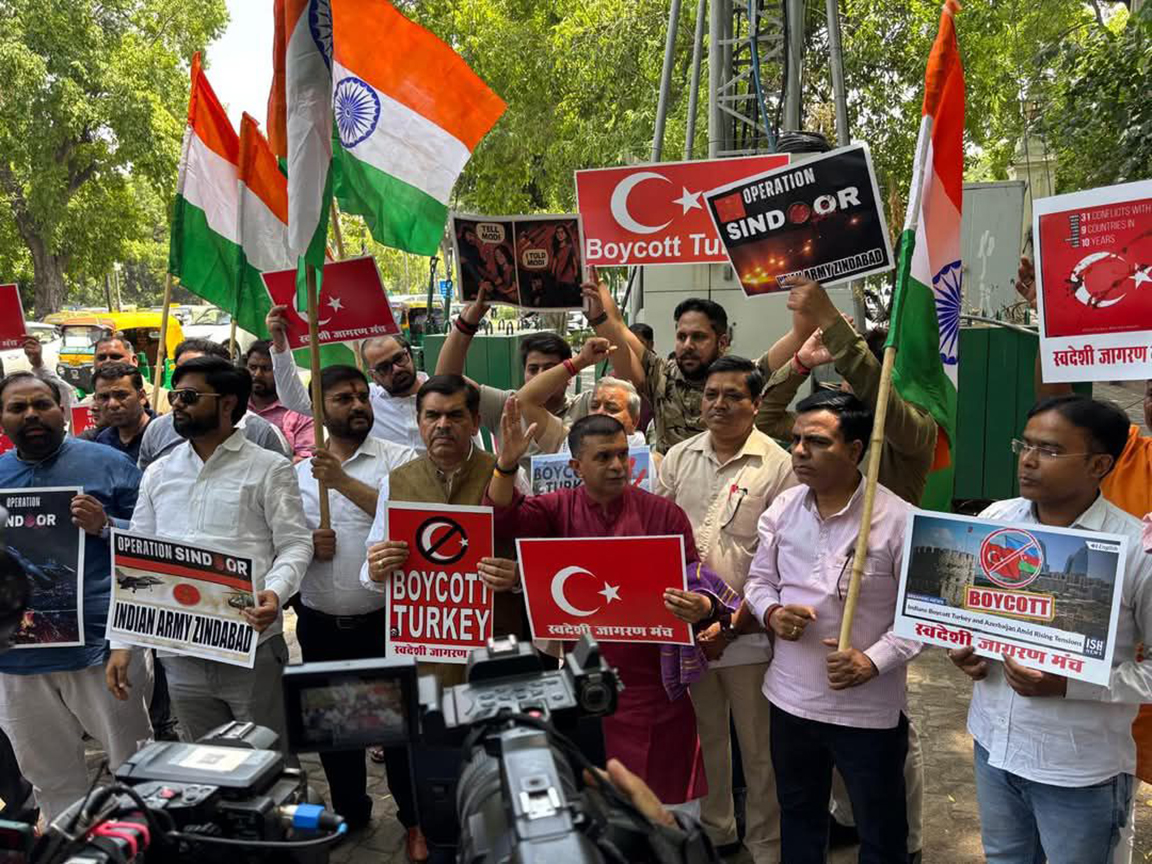Denouncing RSS for ‘Hindu nationalism’ is fallacy, West has lot to learn from it
Updated: May 4, 2023 15:45

Arun Anand
Is ‘Hindu Nationalism’ something that one should be wary of? That is the notion promoted by the Western media and intelligentsia. It is a common practise to discredit the Rashtriya Swayamsevak Sangh (RSS) for the rise of Hindu nationalism in Bharat as this is projected to be an anti-minorities concept. The general line of argument taken by the detractors of the RSS is that Hindu nationalism would lead to Hindu majoritarianism. These interpretations are an outcome of a straitjacketed conceptual framework that has emerged from West’s own experience and hence it is ill-equipped to deal with subjects like ‘Hindu Nationalism’.
The fundamental problem with the Western academia and media is that they are looking at the concept of Hindu nationalism from the European framework. The rise of nation-state in the late medieval period in Europe led to the rise of nationalism there. But the concept of ‘nationalism’ in Europe was parochial, narrow and negative. ‘Nationalism’ in European context primarily meant subjugation of the others to serve the interest of the dominant race in a geographical region. The logical corollary of this concept was that once the dominant race captures the political power in a country, then it should dominate the other countries militarily and that is the only road where ‘nationalism’ leads to. The rise of the ‘White man’s nationalism’ in Europe resulted in colonisation of large parts of Asia, Africa and Latin America, civil wars within the Western nation-states, countless military conflicts between nations, at least two world wars and ethnic cleansing of minorities in the Western countries by the dominant political powers who had captured the power riding on the wave of ‘nationalism’. That is why significant sections of the society as well as the academia, media and intelligentsia in the West are wary of ‘nationalism’. In the West, utterance of the word ‘nationalism’ brings back memories of loot, plunder, bloody wars and a quest for material wealth and military superiority.
But ‘Hindu Nationalism’ is quite different from the European or the Western Nationalism. In this context, it is important to bust this myth propagated by the colonial and Marxist historians that the rise of nationalism in India was an outcome of the British rule and hence it has followed into the footsteps of the ‘European Nationalism.’ The trajectory of European nationalism and Hindu nationalism are altogether different.
In fact, when Europe was going through the dark ages, nationalism was already well established in the Hindu culture. Radha Kumud Mookerji, one of the foremost scholars on ancient history wrote in the early 20th century in his path breaking work ‘Nationalism in Hindu Culture’, “India(Bharat) was preaching the gospel of nationalism when Europe was passing through what has been aptly called the Dark Age of her history, and was labouring under the travails of a new birth. It was truly the dark age of Europe, because it was a period of unrest and unsettlement, when she was a prey to the invasions of the barbarians who, leaving their old homes, overran and disorganised the Roman Empire, but were not progressive enough to plant fixed local habitations of their own in place of the old ones they abandoned.” It took centuries for these barbarian and nomadic people to settle in Europe and subsequently regroup into specific geographic entities leading to rise of the nation-state.
So, when Europe was going through the Dark Age, according to Mookerji, the gospel of wholesome nationalism was already a vital force in the public life of India. All the conditions that make for the growth of a sense of nationhood were fully developed and long known in ancient India. The first and the foremost requirement for rise of nationalism is to have conspicuous geographical boundaries. Indian Vedic literature had defined that specifically by clearly defining mountains, rivers and important pilgrimage centres or cities that defined the geography of India.
Vedic literature explained Bharat’s geography thousands of years before the West was yet to get over the Dark Age:
‘Uttaram yat samudrasya, Himadreshchaiv dakshinam, varsham tad bharatam nama, Bharatee yatra santatihi’. (A sanskrit couplet taken from an ancient Indian scripture called ‘Vishnu Purana’. Vishnu Purana is a primary sacred text of the Vaishnava branch of Hindus. It is part of post-Vedic sacred literature and its origin dates back to at least 2500 years)
(English translation of the above couplet: The country that is north of the Sea and south of the Himalayas is known as ‘Bharat’ (India) and its residents are known as ‘Bharatiya’ i.e. Indians)
So, Bharat (India) as a nation has existed for thousands of years and the rise of nationalism was equated with the love for your motherland here. The motherland was deified as a manifestation of the divine and hence to worship it was important as it would bring prosperity for the whole world. This is ‘ Hindu nationalism’ and its core was not aggression or military superiority but it was based on the dictum of ‘Vasudheiv Kutumbakam’(The whole world is one family).
Nobel Laureate Rabindranath Tagore elaborated on this in a lecture at Kolkata which was later published as a book titled ‘Swadeshi Samaj’, “ India has never fought over kingdom, squabbled over trade. ..The Tibet, China or Japan, who are willing to close all doors and windows in fear of the great Europe, that same Tibet, China, Japan have beckoned India inside their home in an unworried fashion as guru or religious leader. India has not traumatised the whole world’s flesh and blood with her own army and goods, but has earned the esteem of mankind by establishing peace, consolation and religious system everywhere. Thus, the glory she has acquired has been through penance and it is greater than the glory of sovereignty over other kingdoms.”
The concept of Hindu nationalism when applied to Indian polity was based on the rule of ‘Dharma’.
Indian revolutionary turned philosopher and one of the most respected spiritual masters of 20th century Sri Aurobindo explains it comprehensively (The Renaissance in India and other Essays on Indian culture): “A greater sovereign than the King was Dharma, the religious, ethical, social, political juridic and customary law organically governing the life of the people…The subjection of the sovereign power to the Dharma was not an ideal theory inoperative in practice; for the rule of the socio-religious law actively conditioned the whole life of the people and was therefore a living reality, and it had in the political field very large political consequences.”
In a nutshell, Hindu nationalism preceded much before the concept of nationalism emerged in Europe. While the core of European nationalism was to attain more and more material wealth for one particular race or a country, the nationalism in Hindu culture is based on spiritual advancement for not only a particular race or a country but for the whole world. ‘Dharma’ is the driving force of Hindu nationalism where righteousness takes precedence over sovereignty. Unlike the Hindu nationalism whose aim is salvation of the whole world and not material wealth or military superiority or subjugation of any race, religion or a country , the European nationalism is driven by a quest for material wealth through subjugation, domination and exploitation. The key characteristics of Western nationalism is militarism, trade dominance and material progress at the cost of others.
Thus, it is a great fallacy to denounce ‘Hindu Nationalism’ as the West has a lot to learn from it.

